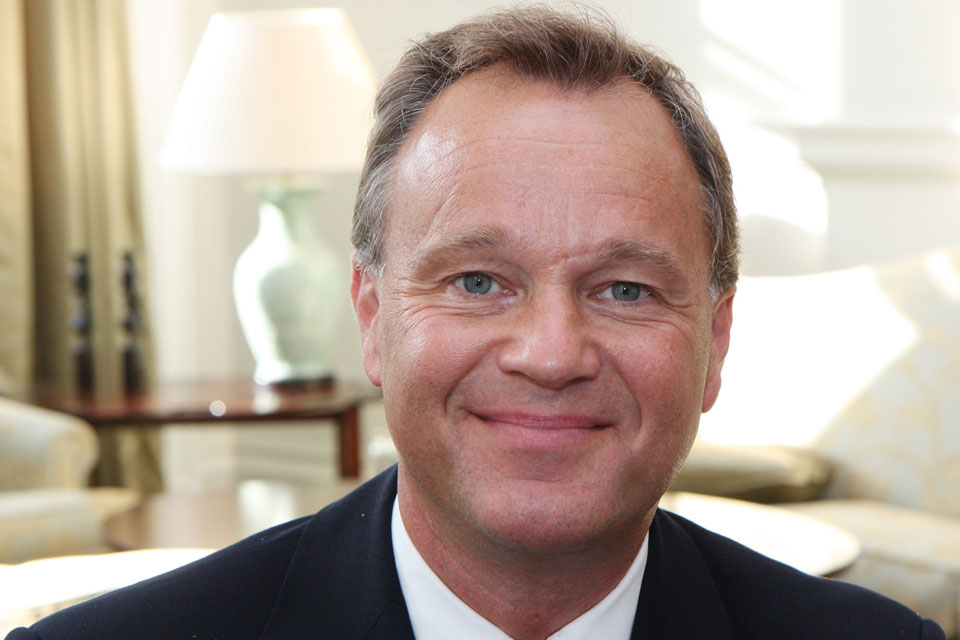Update on the situation in South Sudan
Minister Mark Simmonds updates the House on the situation in South Sudan and UK efforts to help resolve the conflict.

The Parliamentary Under-Secretary of State for Foreign and Commonwealth Affairs, Mark Simmonds: I wish to update the House on the situation in South Sudan and UK efforts to help resolve the conflict.
We remain deeply concerned about the security situation and growing humanitarian crisis in South Sudan. The agreement reached by the parties on 9 May seeks to end months of fighting, in which atrocities have been committed by both sides. Although the fighting on the ground has diminished, the ceasefire remains fragile. Regional leaders, led by Prime Minister Hailemariam of Ethiopia, have made clear that they will not stand by while South Sudan descends further into conflict. We continue fully to support regional efforts to broker inclusive and substantive peace talks leading towards a lasting political settlement.
The already-fragile humanitarian situation in South Sudan has become desperate. Since the conflict started, thousands of innocent civilians have died and 1.3 million have fled their homes, of whom 80,000 have sought shelter in UN bases and 300,000 have sought refuge in neighbouring countries. Millions more face the serious threat of famine. Humanitarian access continues to be restricted by both sides. Enabling humanitarian access and assistance is an immediate priority for the UK. When I visited South Sudan in April and met the South Sudanese Vice President, I made clear that South Sudan was on the brink of disaster.
This Government is also concerned about reports of serious human rights violations and abuses in South Sudan. On 8 May, the UN Mission in South Sudan issued a human rights report that makes clear the scale of human rights atrocities committed since the conflict began. It concludes that civilians were directly targeted by forces on both sides, often along ethnic lines. South Sudan’s own National Human Rights Commission has come to broadly similar judgements. Justice is essential for sustainable peace and national reconciliation in South Sudan. It is therefore vital that all allegations are subjected to thorough, impartial investigation and that perpetrators are brought to justice. The UK looks forward to the outcome of investigations of the African Union’s Commission of Inquiry on South Sudan.
The Foreign Secretary and I, working with our international counterparts since the conflict started, have urged President Kiir and former Vice President Machar to show leadership by ending the fighting and committing to an inclusive political process. We have increased our diplomatic and political engagement with regional leaders to encourage international unanimity and pressure on both sides to resolve the crisis through dialogue. UK officials work closely with regional mediators and others to maintain pressure on the parties and ensure that the international community speaks with one voice. We are considering all levers at our disposal, including the possibility of targeted sanctions, which we are currently discussing with EU partners. In addition to diplomatic and political support, the UK continues to provide financial assistance and expertise to the regional mediation efforts led by the Intergovernmental Authority on Development (IGAD). UK expertise supports both the political process and arrangements for monitoring and verifying ceasefire violations. The swift deployment of the protection force for the IGAD Monitoring and Verification Mechanism as part of the UN Mission in South Sudan will help build confidence and ensure that the fragile ceasefire holds.
In the UN Security Council, the UK worked to achieve a more focused mandate for the UN Mission in South Sudan (UNMISS), adopted on 27 May 2014 as UN Security Council Resolution 2155 (2014). The new mandate will allow UNMISS to respond more effectively to the current situation in South Sudan, focusing on better protection of civilians, enabling the provision of humanitarian assistance, monitoring the human rights situation and crucially providing protection and other support to regional efforts to maintain a ceasefire.
At the UN Human Rights Council this month we are aiming, with African support, for a strong resolution that properly reflects the seriousness of recent events in South Sudan. The gravity of the situation in South Sudan will also be highlighted at this week’s Global Summit to End Sexual Violence in Conflict that the Foreign Secretary is co-hosting with Angelina Jolie, Special Envoy of the UN High Commissioner for Refugees.
The UK is one of the leading donors to the humanitarian effort in South Sudan, contributing around £93.5 million since the conflict started, including £13m for regional support to refugees. UK humanitarian assistance helps support food security and provides an emergency lifeline of tents, healthcare and other vital supplies to millions. At the Oslo Humanitarian Pledging Conference on 20 May, the Parliamentary Under-Secretary of State for International Development, Lynne Featherstone, announced new UK funding of £60million for the humanitarian effort in South Sudan.